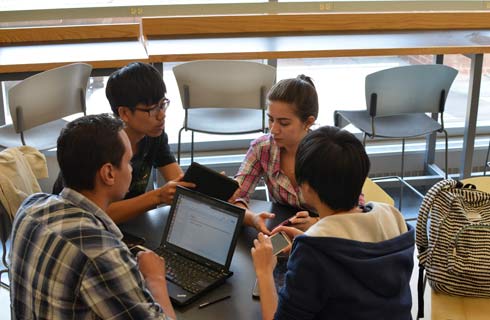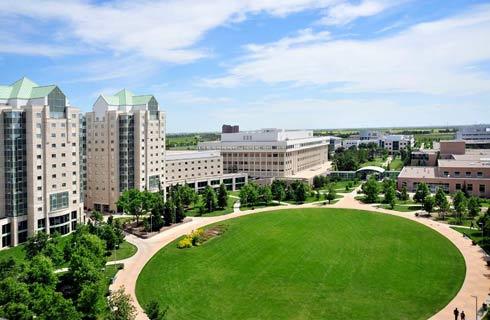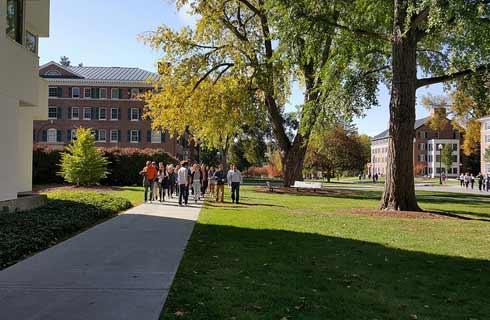Doctor of Philosophy in Chemical Engineering - Energy and Water

学历文凭
Ph.D.

专业院系
Chemical & Materials Engineering

开学时间

课程时长

课程学费

国际学生入学条件
In addition to the requirements of the NMSU Graduate School, applicants to the CHME program must also provide: (1) a statement of purpose for pursuing graduate studies in Chemical & Materials Engineering, (2) an official GRE score, and (3) three letters of recommendation from previous mentors. The university requires a minimum of 3.0 GPA (or equivalent) for regular admission
IDP—雅思考试联合主办方

雅思考试总分
6.5
- 雅思总分:6.5
- 托福网考总分:79
- 托福笔试总分:550
- 其他语言考试:NA
CRICOS代码:
申请截止日期: 请与IDP联系 以获取详细信息。
课程简介
相关申请
 预科
预科 奖学金
奖学金 实习机会
实习机会 在校学习
在校学习 跨境学习
跨境学习 校园授课-线上开始
校园授课-线上开始 在线/远程学习
在线/远程学习
开学时间&学费
学费信息仅供参考,请与IDP联系以获取详细信息
| 开学时间 | 时长 | 学费 | 地点 |
|---|
学校排名

世界排名601
数据源:
泰晤士高等教育世界大学排名
关于新墨西哥州立大学

新墨西哥州立大学是一所历史悠久的公立大学,成立于1888年,主校区位于新墨西哥州的拉斯库鲁斯(New Mexico, Las Cruces),是“大陆法案大学”( land-grant university)之一。最早创立时候名为拉斯库鲁斯学院(Las Cruces College), 是一所农业学院。1889年更名为“New Mexico College of Agriculture and Mechanic Arts”。总计有2.64万学生(2005年数据), 师生比是1:19。NMSU所设的学科,包括农科、生物科学、商科管理,大众传播及艺术、计算机及自然科学,教育、工程及环境设计、健康专业、社会科学等。
本校相关课程

机械工程哲学博士
学历文凭
Ph.D.
开学日期
课程费用总额


机械工程理学硕士
学历文凭
Masters Degree
开学日期
课程费用总额


Doctor of Philosophy in Electrical Engineering
学历文凭
Ph.D.
开学日期
课程费用总额


Master of Science in Electrical Engineering
学历文凭
Masters Degree
开学日期
课程费用总额


土木工程理学硕士
学历文凭
Masters Degree
开学日期
课程费用总额


化学工程博士学位
学历文凭
Ph.D.
开学日期
课程费用总额

其他相关课程

Graduate Certificate in Engineering - Chemical and Biomolecular Engineering
 马里兰大学帕克分校
马里兰大学帕克分校学历文凭
Graduate Certificate
开学日期
课程费用总额


化学工程理学硕士
 犹他大学
犹他大学泰晤士高等教育世界大学排名:246
学历文凭
Masters Degree
开学日期
课程费用总额


Master of Science in Chemical and Biochemical Engineering
 罗格斯大学新布朗斯维克分校
罗格斯大学新布朗斯维克分校学历文凭
Masters Degree
开学日期
课程费用总额


Master of Science in Engineering in Chemical Engineering - Polymers and Complex Fluids
 密歇根大学安娜堡分校
密歇根大学安娜堡分校学历文凭
Masters Degree
开学日期
课程费用总额


化学工程博士学位
 萨斯喀彻温大学
萨斯喀彻温大学学历文凭
Ph.D.
开学日期
课程费用总额


Doctor of Philosophy in Chemical Engineering
 亚利桑那大学
亚利桑那大学泰晤士高等教育世界大学排名:138
学历文凭
Ph.D.
开学日期
课程费用总额










